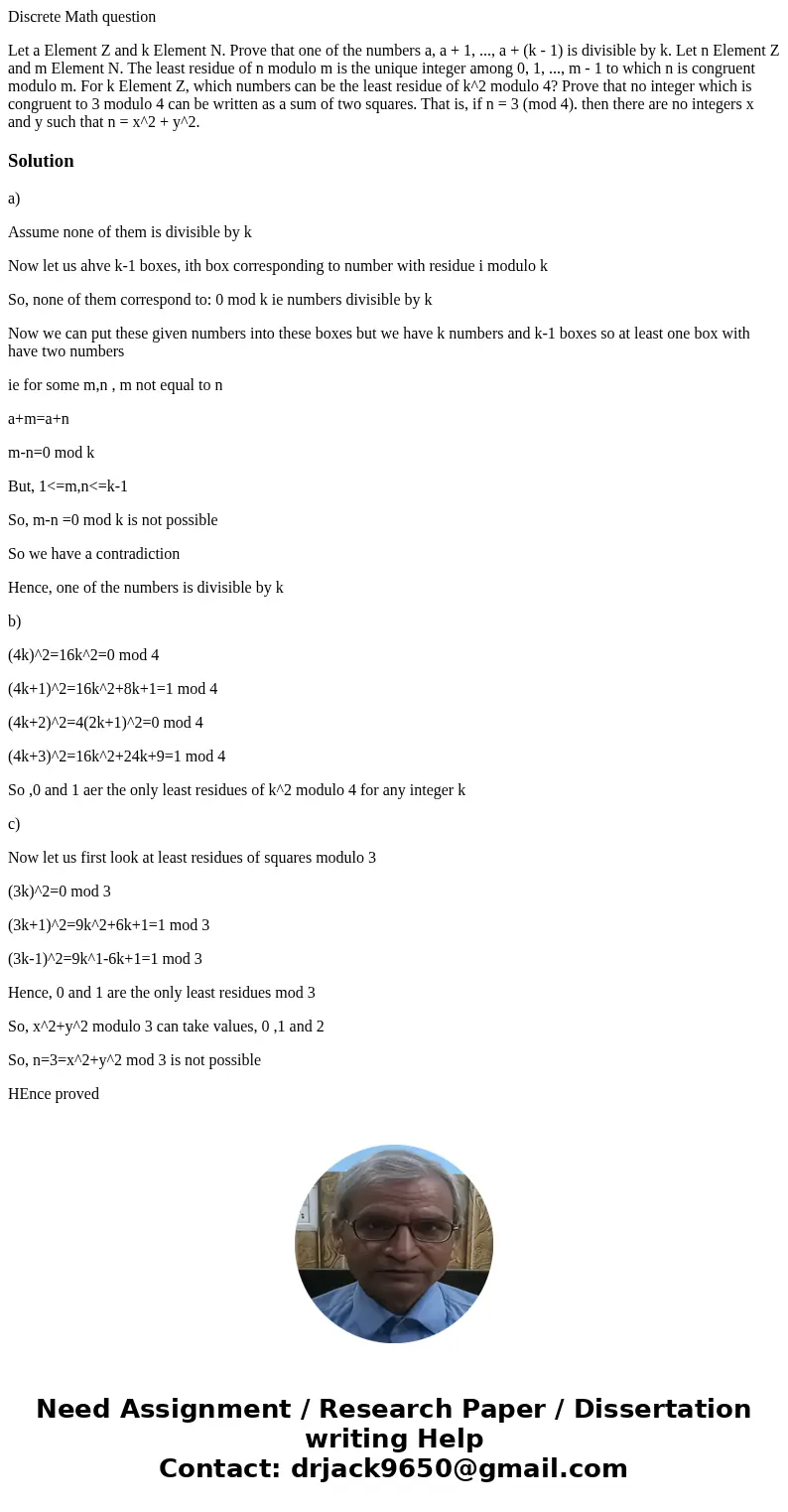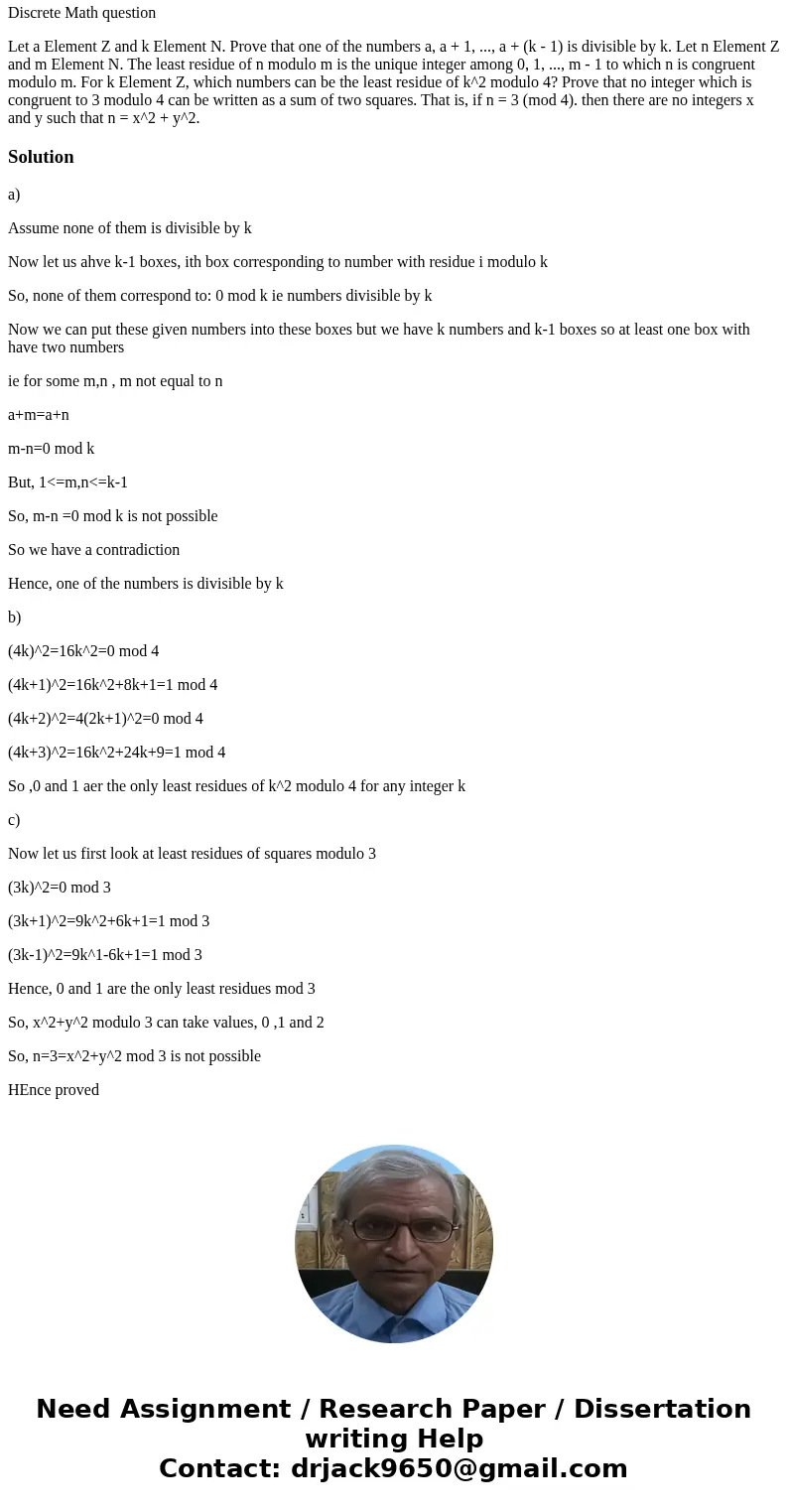Discrete Math question Let a Element Z and k Element N Prove
Discrete Math question
Let a Element Z and k Element N. Prove that one of the numbers a, a + 1, ..., a + (k - 1) is divisible by k. Let n Element Z and m Element N. The least residue of n modulo m is the unique integer among 0, 1, ..., m - 1 to which n is congruent modulo m. For k Element Z, which numbers can be the least residue of k^2 modulo 4? Prove that no integer which is congruent to 3 modulo 4 can be written as a sum of two squares. That is, if n = 3 (mod 4). then there are no integers x and y such that n = x^2 + y^2.Solution
a)
Assume none of them is divisible by k
Now let us ahve k-1 boxes, ith box corresponding to number with residue i modulo k
So, none of them correspond to: 0 mod k ie numbers divisible by k
Now we can put these given numbers into these boxes but we have k numbers and k-1 boxes so at least one box with have two numbers
ie for some m,n , m not equal to n
a+m=a+n
m-n=0 mod k
But, 1<=m,n<=k-1
So, m-n =0 mod k is not possible
So we have a contradiction
Hence, one of the numbers is divisible by k
b)
(4k)^2=16k^2=0 mod 4
(4k+1)^2=16k^2+8k+1=1 mod 4
(4k+2)^2=4(2k+1)^2=0 mod 4
(4k+3)^2=16k^2+24k+9=1 mod 4
So ,0 and 1 aer the only least residues of k^2 modulo 4 for any integer k
c)
Now let us first look at least residues of squares modulo 3
(3k)^2=0 mod 3
(3k+1)^2=9k^2+6k+1=1 mod 3
(3k-1)^2=9k^1-6k+1=1 mod 3
Hence, 0 and 1 are the only least residues mod 3
So, x^2+y^2 modulo 3 can take values, 0 ,1 and 2
So, n=3=x^2+y^2 mod 3 is not possible
HEnce proved


 Homework Sourse
Homework Sourse